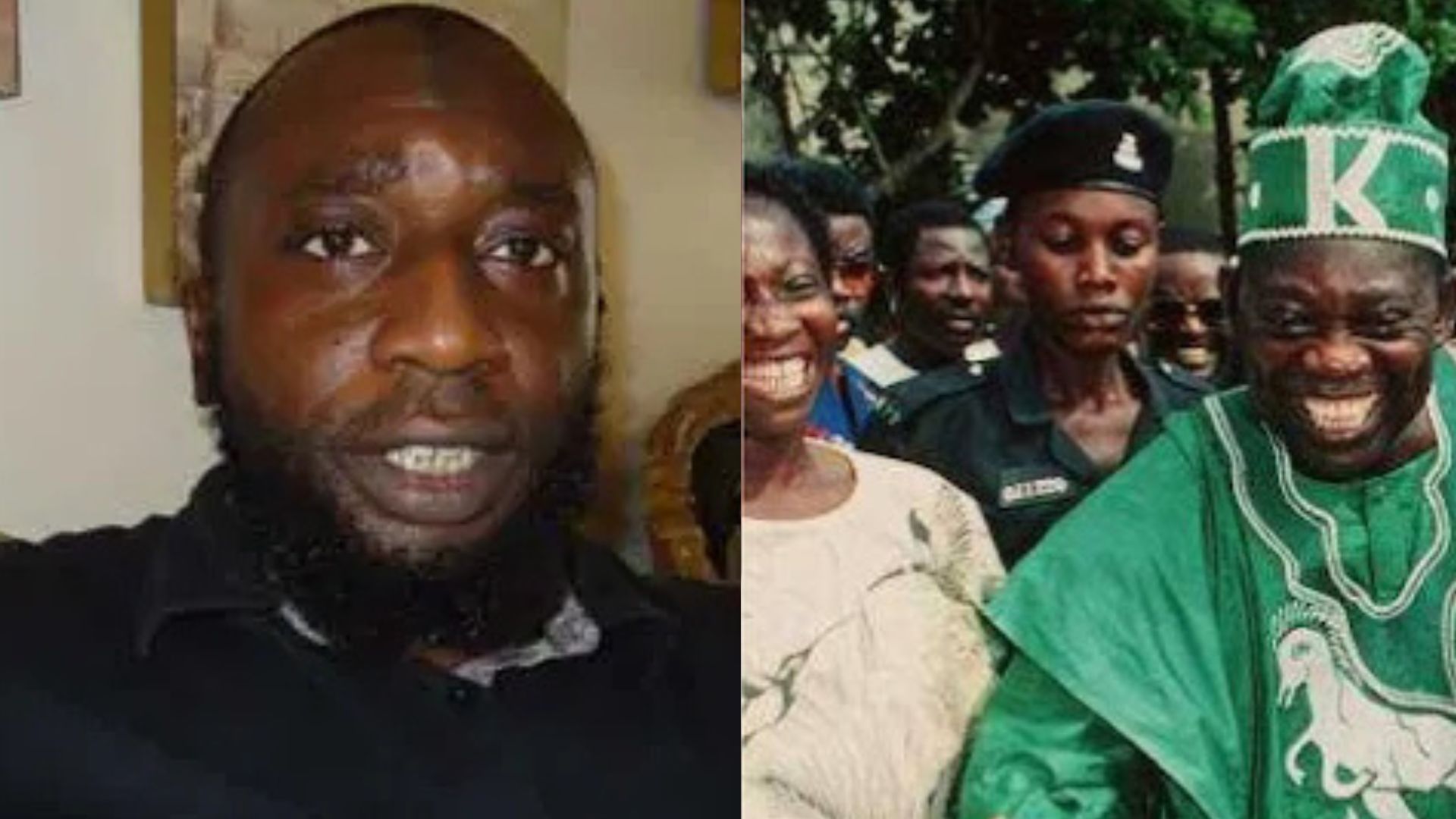120 women claimed to have kids for my father, only 53 passed DNA test - MKO's son

MKO Abiola's Son Reveals DNA Test Results, Unpaid Debts, and Calls for Greater Recognition
Olalekan Abiola, son of the late Chief Moshood Kashimawo Olawale (MKO) Abiola, has shed light on the complexities surrounding his father's legacy, including the outcome of DNA tests conducted on individuals claiming to be Abiola's children, and the ongoing struggle to recover debts allegedly owed to the family by the Federal Government. He also reiterated the need for a more fitting immortalization of his father, the presumed winner of the annulled June 12, 1993, presidential election.
DNA Tests and Paternity Claims
Speaking on the 32nd anniversary of the annulled June 12 election, Olalekan addressed the sensitive issue of numerous paternity claims that arose following MKO Abiola's death in 1998. He revealed that approximately 120 individuals came forward, asserting they were fathered by the late politician. However, DNA testing significantly reduced that number. "My father wrote in his will that DNA tests had to be done for all those who claimed to be his children… only 53 passed the DNA test at the end of the day," Olalekan stated.
This move, while initially contentious, provided a framework for identifying legitimate heirs, though it hasn't entirely eliminated internal disputes within the large Abiola family.
Unpaid Debts and Government Promises
A significant concern for the Abiola family remains the alleged unpaid debts owed by the Federal Government to MKO Abiola's extensive business empire. Olalekan identified several ministries, including Communications, Education, and Defense, with outstanding contracts. He expressed frustration with successive administrations, from Olusegun Obasanjo to Muhammadu Buhari, who, according to him, made promises to address the issue but ultimately failed to deliver.
"They always promise to set up a committee to pay back the debts but none of them ever did," Olalekan lamented. He noted that even President Goodluck Jonathan had pledged to revisit the matter if re-elected, a promise that went unfulfilled.
With President Bola Ahmed Tinubu, a known associate of MKO Abiola during the pro-democracy struggles, now in power, the family holds a mixture of hope and cautious optimism. "He has not said anything about it yet," Olalekan acknowledged.
Call for Greater Recognition and Immortalisation
Beyond the declaration of June 12 as Democracy Day, Olalekan advocates for more substantial measures to properly honor MKO Abiola's contribution to Nigeria's democratic journey. He argues that Abiola, who won a widely acknowledged free and fair election, deserves the same level of recognition as former military leaders. "If people like Abacha or Babangida, who were never elected, have their pictures in Aso Rock, why not MKO who Nigerians voted for in a free and fair election?" he questioned.
Olalekan believes MKO Abiola should be accorded the full benefits and allowances that would have accrued to him as president, arguing that it is the least the government can do to acknowledge his sacrifice and the will of the Nigerian people.
Expert Perspective: The Significance of June 12
Dr. Adebayo Williams, a political analyst and historian at the University of Lagos, emphasizes the enduring significance of June 12 in Nigeria's political landscape. "The annulment of the June 12 election was a watershed moment that exposed deep-seated ethnic and regional tensions within the country," Dr. Williams explains. "MKO Abiola's story is a powerful reminder of the sacrifices made in the struggle for democracy, and it continues to resonate with Nigerians across ethnic and religious divides."
Historical Context: The June 12 Crisis
The June 12, 1993, presidential election was widely considered the freest and fairest in Nigeria's history. However, the military regime of General Ibrahim Babangida annulled the results, plunging the nation into political turmoil. MKO Abiola, the Social Democratic Party (SDP) candidate, was imprisoned for declaring himself president, and he died in detention in 1998. His wife, Kudirat Abiola, was assassinated in 1996 for her activism in demanding her husband's release and the validation of the election results.
Current Context: Nigeria's Democracy
Nigeria is currently experiencing its longest uninterrupted period of democratic rule, which began in 1999. While the country has made progress in strengthening its democratic institutions, challenges remain, including corruption, insecurity, and ethnic tensions. The legacy of June 12 serves as a constant reminder of the importance of upholding democratic principles and ensuring free and fair elections.
According to political commentator, Aisha Muhammed, "The current administration should take steps to address the lingering issues surrounding the Abiola family, including the alleged unpaid debts. Doing so would not only be a just act but also a powerful symbol of commitment to the rule of law and the principles of fairness."
Olalekan concludes that despite the pain and injustice, the continued reverence Nigerians hold for his father's memory provides solace. He hopes that the sacrifices of MKO and Kudirat Abiola will continue to inspire generations to strive for a more equitable and just society.
Originally sourced from: pulse Ng
